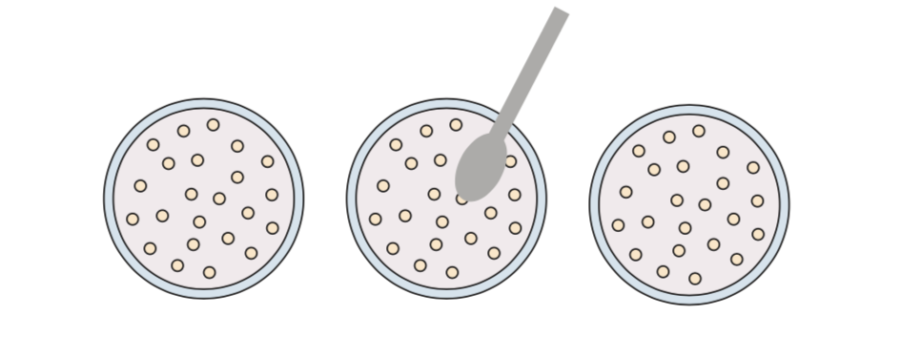Quarantine: not a piece of cake, a bowl of cereal
September 1, 2020
If quarantine taught me one thing, it’s that the grocery bill for the appetite of three quarantined men is ungodly.
Lucky Charms cereal was, without a doubt, the most consumed product in my household when my family was in quarantine. As I write this, my brother is en route to buy my father his birthday present: a box of Lucky Charms, a peace offering, perhaps.
My brother has, you see, with little amusement and high frequency, opened the Lazy-Susan to enjoy a late-night bowl of Charms, only to discover an empty box, no thanks to my father and my voracious appetites. So, my brother insisted that the Lucky Charms be divided into three containers labeled with each of our names. Eating cereal out of another’s container is to this day considered a terrible sin.
What my brother didn’t realize was how relevant our silly cereal fiasco was to the current global pandemic.
Losing his chance to enjoy those delectable Charms, he insisted on privatizing the cereal in order to protect his claim. That, in a nutshell, is the tragedy of the commons, and it is essential for Americans in understanding government intervention during COVID-19.
In the tragedy of the commons, communities take so much advantage of a shared resource that there ultimately remains no substantial amount left for anyone. Imagine if I lived with a hundred family members who all shared the same food, instead of four. The mad breakfast rush would leave not only the cereal boxes empty but also all of our stomachs. Take pollution as another prime example of this tragedy. Innumerable actors greedily consume our oceanic resources, killing sea life via pollutants and creating increasingly dangerous conditions for the rest of humanity.
Unfortunately, from the individual’s perspective, the benefit of mistreating a shared resource for personal gain far outweighs the cost the action imposes on society. And ergo, the vicious cycle continues. As one scholar noted, “Freedom in a commons brings ruin to all.”
Philosopher John Locke said in his second treatise of government that man is in the state of liberty, but not in the state of “license.” Man’s right to life and liberty does not give him the ability to infringe upon his neighbor’s rights. This boundary between one person’s liberty and another’s injustice comes to a head in the commons.
The commons are considered by economists to be “rival” in nature: one person’s use results in another person’s loss (think cereal). How then do we regulate it? How do we encourage liberty but simultaneously restrict it from becoming license? To do so, we need a commons regulator, a referee of sorts. The government, whether we like it or not, dominates this industry.
The government protects endangered animal species from overhunting by protective legislation. It prevents highways from uncompensated overuse by toll booths. It imposes fines on people who litter in public parks. It rations communal food during times of war. And now, it protects our shared hospitals from overcrowding.
Most of us rarely think about the tragedy of the commons, but the reality is that the idea of government and its act of restricting civil liberties during this crisis doesn’t make much sense without it.
The lockdowns and masks requirements that have occurred internationally are attempts to safeguard the shared resource of public health and health systems. There are only so many hospital beds. There are only so many nurses.
In the spring, Prof. Lawrence O. Gostin et al wrote a piece called “Responding to Covid” which stated, “Scarcity of health resources…will likely cause more deaths of persons with a variety of urgent health needs than of patients diagnosed with COVID-19.”
In other words, the COVID crisis has been less about COVID victims and more about the consequences of straining the US health system. When it seems we are at risk of overusing the resources we all need, the government steps in to regulate and allocate. The truth is, we need it to, because free markets alone do not always efficiently or ethically distribute resources in times of emergencies.
Quarantine’s not a piece of cake—it’s a bowl of cereal.
The Lucky Charms shortage in my house offers a key insight into understanding the scarcity of public health resources. When the hunger for shared property sets in, there is rarely enough to go around, and commons regulators must arbitrate.
As we reflect on the pandemic, we must remember state lockdowns were and are governmental attempts to solve the tragedy of the commons. How much power does the government have to protect our shared resources? It’s unclear. The boundary between liberty and license is blurry. But the coming days may force us to reexamine that question.
Courts have ruled favorably towards state-wide quarantines and governmental measures to “flatten the curve”. But protests across the country demonstrated many Americans believed the states and the federal government overstepped their bounds. Did they?
We won’t know unless we understand the coronavirus crisis as a crisis of the commons.
































































































































































